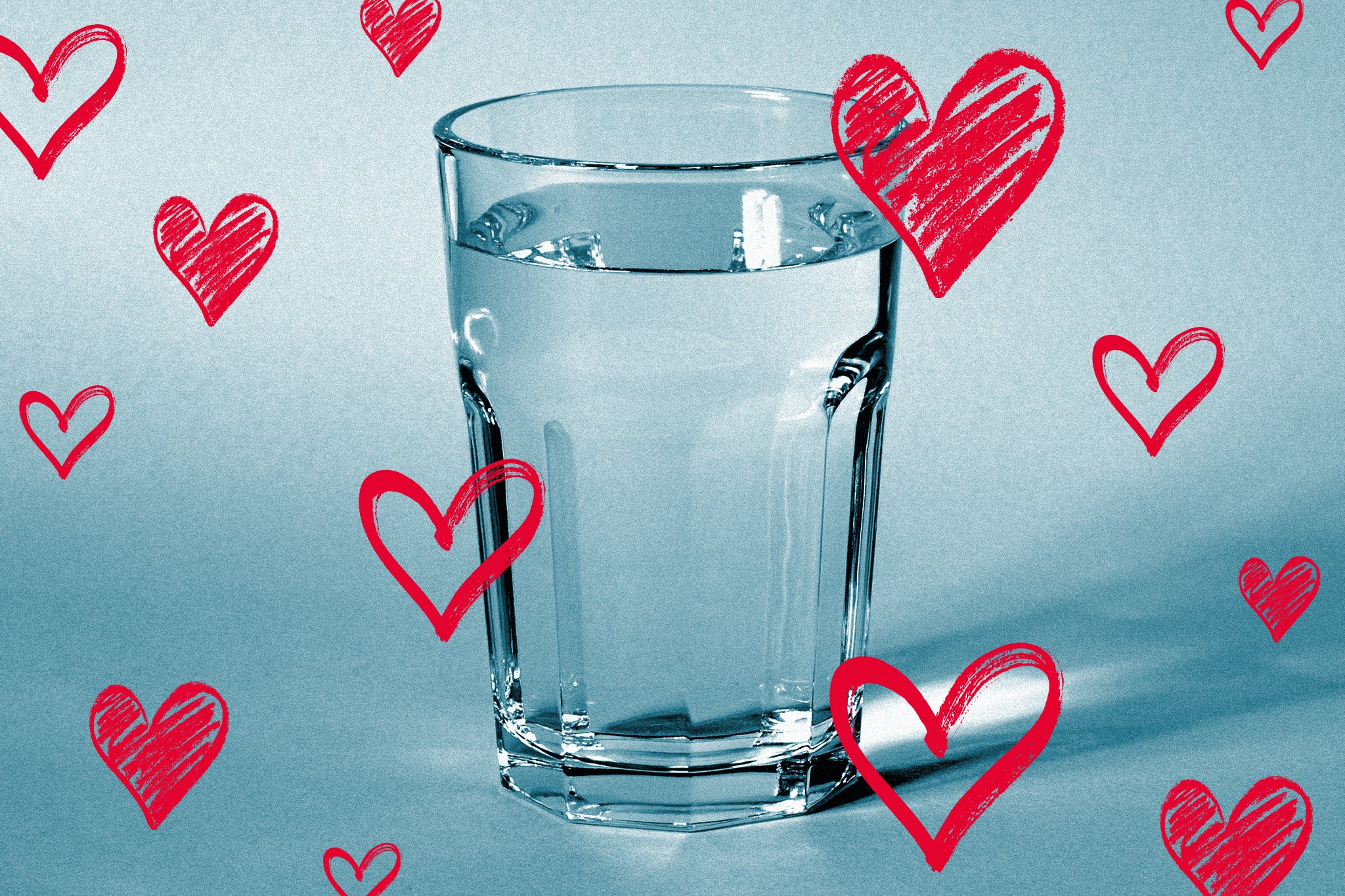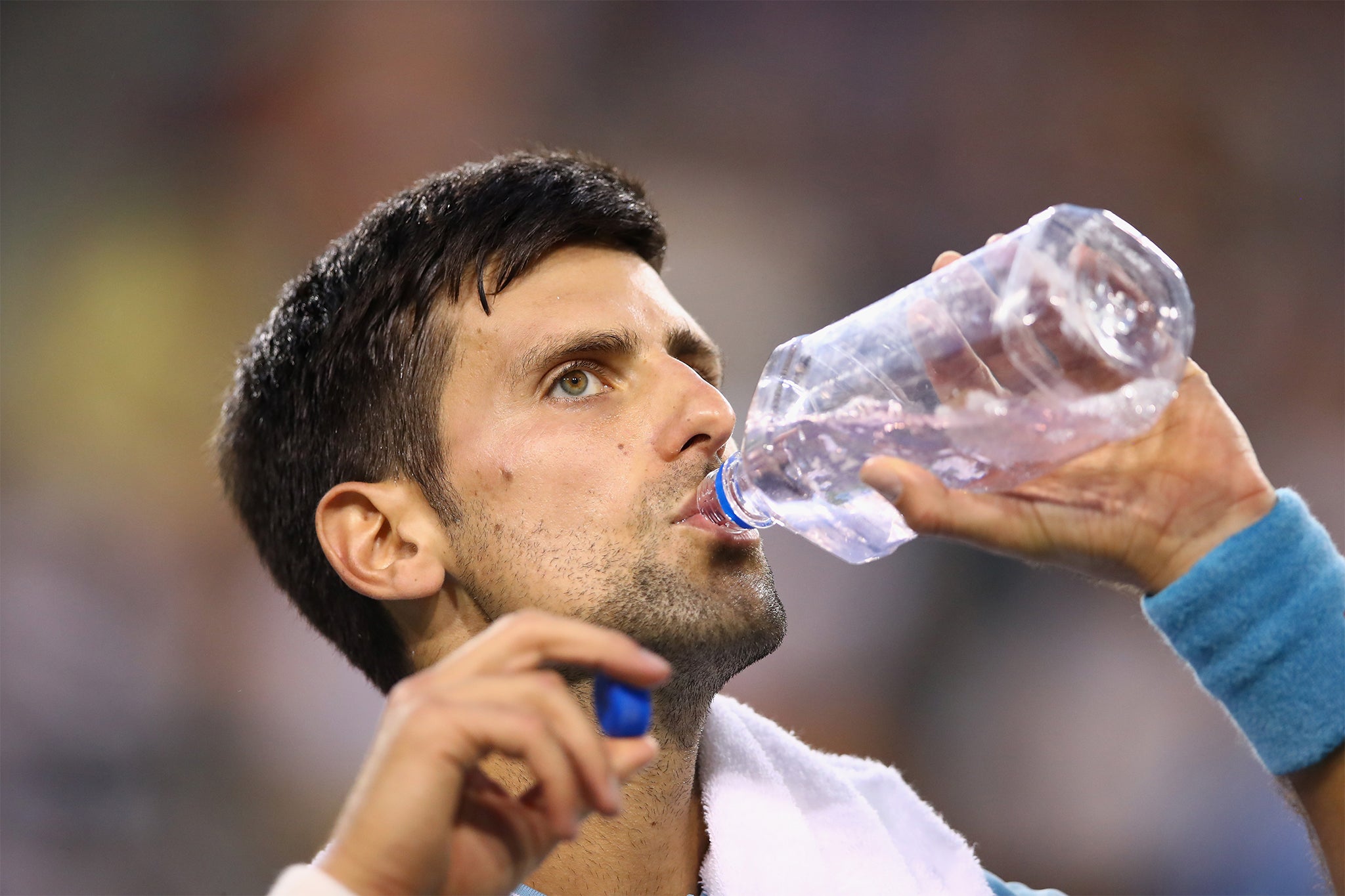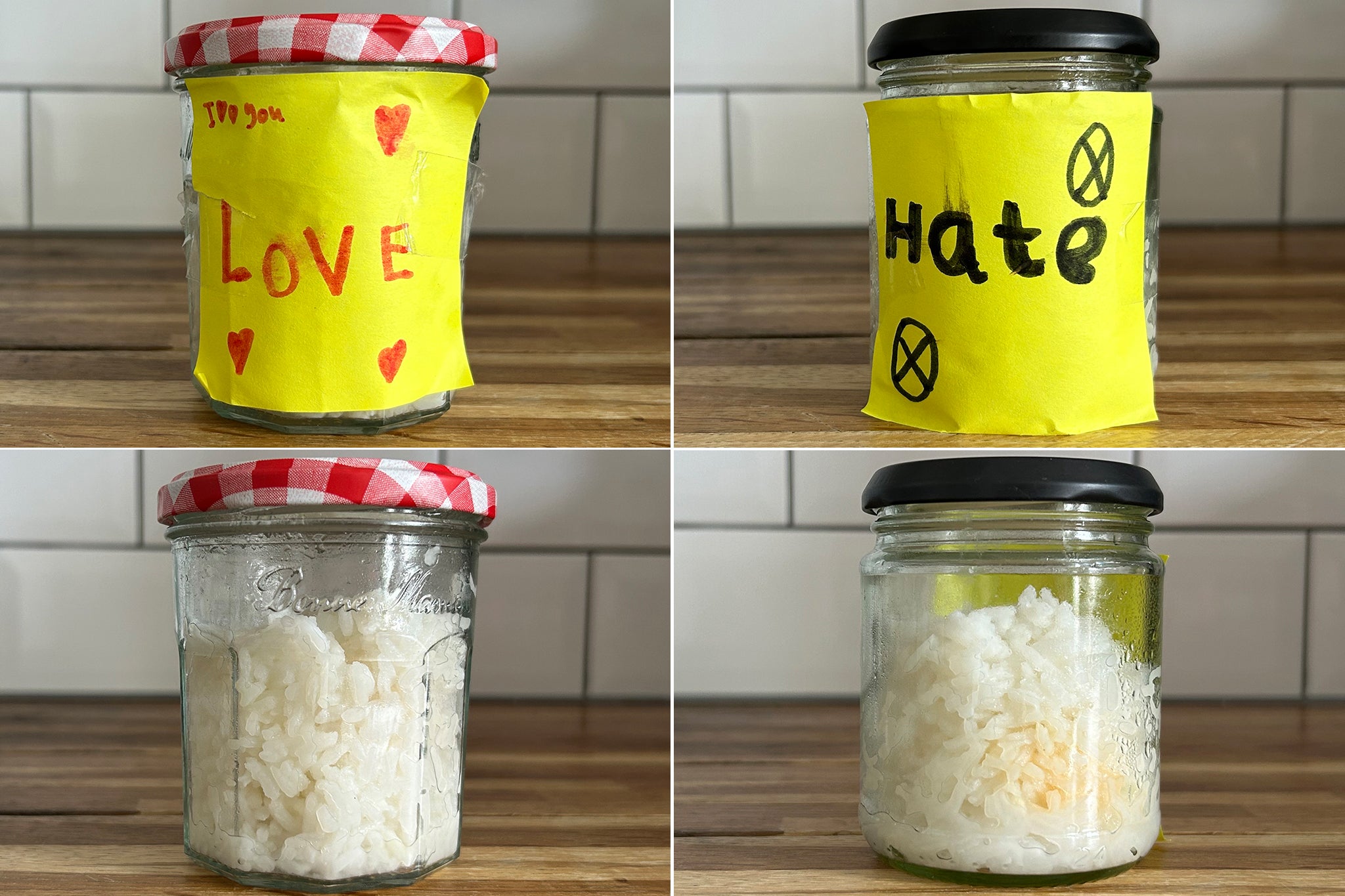I spent a week talking to my water and telling it ‘I love you’ – here’s what I learnt
While the nation was gripped by Novak Djokovic’s on-court antics over the last few weeks at Wimbledon, Charlotte Cripps was more intrigued by his wacky beliefs in purifying water with the mind – so she decided to give it a go


I was a little hesitant about sweet-talking a glass of water to help raise its frequency and energy. It all seemed too far-fetched. But while the nation was gripped by Novak Djokovic’s on-court antics over the past few weeks at Wimbledon, I’d been distracted by his bizarre beliefs – some of which include talking positively to his food, and “purifying” water with his thoughts. And that’s why I’m about to drink a glass of water that I’ve charged with positive intentions. I have, for now, ditched the home filtration system and purification tablets in favour of this new regime. That regime being the power of my mind.
Could it be a game-changer, as Djokovic suggests? I’ve watched enough TikTok videos to know what to do. I hold the glass of tap water in both hands. I close my eyes. I whisper it sweet nothings. “I love you”. “Thank you”. “You are perfect”. “Every molecular cell is in perfect health”. Then I gulp it down in one go.
I’ve even added a little mantra to manifest my dreams: “I am wealth, I am health, I am love.” I say this while my children get ready for school – and look at me in disbelief. “I am abundant in all things. Thank you!” Then I drink the water and start my day. (A caveat: I switched from Thames Water to bottled midway through the trial – I could still taste the chemicals even after sending it really, really good vibes.)
So, does water really have “feelings”? Can human consciousness affect its molecular structure? Well, probably not – but the late Japanese pseudoscientist Masaru Emoto, who died in 2014, swore by it. He performed a series of experiments in the Nineties observing the physical effect of words, prayers, music and environment on the crystalline structure of water. After it was exposed to positive or negative experiences, he’d freeze it. Under the microscope, and depending on whether it was loved, ignored, or angrily shouted at, the crystal could look like a beautiful snowflake or an ugly nuclear explosion.
Emoto’s experiments lacked credibility, though, and were promptly ridiculed by the scientific establishment. One critic questioned “the sanity of the reading public” when Emoto’s The Hidden Messages in Water became a New York Times bestseller in 2004. This hasn’t stopped Djokovic any. He drinks “pyramid water” from Bosnia, which supposedly possesses unique properties due to its exposure to the “mystical” energy of ancient pyramids. He also believes in telekinesis to purify food, saying in 2020: “I know some people [who] – through that energetical transformation, the power of prayer, through the power of gratitude – manage to turn the most toxic food or the most polluted water into the most healing water. Water reacts, and scientists have proven that – molecules in the water react to our emotions, to what is being said.”
Unsurprisingly, Gwyneth Paltrow has also advocated for the healing qualities of water, writing in a Goop mailout in 2014 that she was “fascinated by the growing science behind the energy of consciousness and its effects on matter”. She also confessed to having a copy of Emoto’s book. In addition, the former England and Liverpool striker Rickie Lambert shocked his fans last year by claiming that water could be cleaned by talking positively to it.

I had to know whether any of this was accurate. Unexpectedly, when I started to talk to my water last week, I noticed the benefits almost immediately. After verbalising positive affirmations, I became more comfortable with the idea of self-love and self-talk. I had also developed a stye in my left lower eyelid – something I’ve never had before – and my GP told me I might need to go to hospital if it worsened over the weekend. I went home and poured myself a glass of cool water and talked directly to it. “You are wonderful, lovely water,” I said. “Every drop of you is healing and makes everything better with my eye. Thank you. I love you.” My eye got better later that day. Obviously, it might have nothing to do with the loved-up water – I did use a hot compress on it that was medically advised. But who knows?
I also decided to take my water experiment to the next level: I was going to give Emoto’s famous rice experiment a go. He claimed that if you put rice in three separate jars and treat those jars differently, the rice will be affected in different ways. I involved my two children – eight-year-old Lola and six-year-old Liberty. We cooked up some rice and added it to three glass jars with a bit of water. We labelled one jar “love”, another “hate”, and left the third jar blank. According to Emoto, the rice in the hated and ignored jar would begin to rot.
My children and I spoke regularly to the jars of rice in accordance with their labels. “You are my bestie, you make me happy, you make me smile,” Liberty told the “love” jar. “I hate you, you’re stupid, you’re so ugly,” Lola told the “hate” jar. We didn’t pay any attention to the third jar. After only one week of keeping track of the jars, we were shocked by what we discovered. The rice in our “love” jar looked pearly white, with individual neat grains stacked up – “like you’d want to eat it,” said Lola. The “hate” rice and the ignored rice were both clumped together and swollen. Strangely, the “hated” rice also had a yellow patch in the middle of it. I couldn’t explain how it had happened.
I do wonder if the ignored rice needed to be closer to the loved rice, rather than hidden behind the Rice Crispies – as a sort of measuring stick to our indifference and for bolder results. But alas.

Anyway, back to the water. While the notion of “water memory” has long been a central theme in homoeopathy, it’s not something that most scientists take seriously. “As a cell biologist I can think of no reason how or why talking to a glass of water could affect the water in any way,” says Emeritus Professor William Reville, from the School of Biochemistry and Cell Biology at Cork University. “No more than talking to a wall will have any effect on the wall.”
“H2O is the same water whether in our bodies or in a glass,” he adds. “The chemical or physical properties of water are well known and the many ways water facilitates the biochemical processes of life are understood. There is nothing mystical or mysterious about this, although the details are beautifully intricate and pleasing to behold.”
The difficulty with ideas such as Emoto’s, he says, is that “it is not possible, so far at least, to propose a credible mechanism whereby emotions and thoughts could physically affect water molecules”. But, he adds, there is plenty of evidence that thinking positively and hopefully is good for our own mental wellbeing. “There is nothing mysterious about this and it is well understood and attested to by psychology. But this is an entirely different matter to ‘energising’ a glass of water with your mind.”
Dr Tara Swart, a neuroscientist and the bestselling author behind 2019’s The Source: Open Your Mind, Change Your Life, takes a slightly different approach. She is in fact optimistic about the potential benefits of talking to water.
“Although there is no science to prove that you can purify water with your mind, water molecules do rearrange themselves in response to certain pieces of music,” she says, adding that “positive talk to plants or water has some anecdotal evidence”.
It’s all to do with manifestation, she continues. “By positive thinking, self-talk or speaking positively to others – possibly including water and plants – you are moving your brain state from one of stress or loss to one of trust and abundance,” she says. “Because we’re wired to avoid loss more than to gain reward, it is important to override this negative bias with the power of our mind to thrive in the modern world.”
With all of that in mind, I’ve decided to carry on telling my water how amazing it is – and also how abundant my life is. If it’s true that happiness, wealth, love and health can be governed by our brain, what have I got to lose? The water might not really soak up my positivity, or be able to forget all the other “memories” it had before it ended up in my glass, but I at least know that I’m drinking to a positive future.
Join our commenting forum
Join thought-provoking conversations, follow other Independent readers and see their replies
Comments
Bookmark popover
Removed from bookmarks